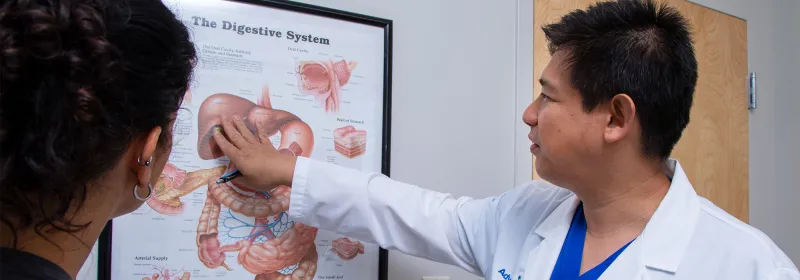
Esophagogastroduodenoscopy (EGD) for
Esophageal, Stomach and Small Bowel Conditions
The most common endoscopic procedure is an upper endoscopy. This procedure is also called an esophagogastroduodenoscopy (EGD) because it looks at the:
- Esophagus (esophago)
- Stomach (gastro)
- First part of the small intestine (duoden)
When someone speaks of having an “endoscopy,” it usually means this procedure.
Uses of EDG
Upper endoscopy is used to diagnose, monitor, biopsy and treat several digestive conditions.
EGD for Diagnosis
An upper endoscopy can help in the diagnosis of several conditions. Some of these include:
- Gastroesophageal reflux disease (GERD)
- Crohn’s disease
- Difficult swallowing (dysphagia)
- Chronic nausea or vomiting
- Chronic indigestion (dyspepsia)
- Bleeding in the upper digestive tract
EGD for Active Monitoring of Conditions
Upper endoscopy can also be used to monitor certain conditions to determine if they need medical attention:
- Barrett’s esophagus
- Stomach ulcers
- Follow-up after stomach surgery
EGD for Biopsy
Sometimes upper endoscopy is used for biopsy by collecting small tissue samples. These samples will be looked at under a microscope to determine if the patient has any suspected conditions such as:
- Esophageal cancer
- Stomach cancer
- Celiac disease
EGD for Treatment
Finally, a doctor can use upper endoscopy as part of another procedure to treat a condition.
Some treatment procedures that use upper endoscopy include:
- Minimally invasive surgery for GERD
- Esophageal dysplasia treatment
- Removing early-stage cancer or precancerous growths such as polyps
- Feeding tube placement
- Correcting stenosis or achalasia
- Draining a pancreatic cyst
- Removing foreign objects from the esophagus
What an EGD Involves
Preparing for an upper endoscopy is easy. It involves fasting for a few hours beforehand. Some patients may need to stop taking certain medications a few days before their procedure. When the endoscopy is about to begin, the patient will lie on a bed with his or her head slightly raised on a pillow. The endoscope—a flexible tube with a light and camera—will gently be placed down the patient’s throat and into the esophagus.
Many patients only have their throats numbed so they won’t feel the endoscope, but some prefer light sedation or even general anesthesia. At AdventHealth Digestive Institute, we want you to be comfortable during your endoscopy and will work to achieve that. After the endoscope travels through the esophagus, it continues through to the stomach. Then it passes through to the upper part of the small intestine (the duodenum) until it is brought back out of the upper digestive tract. When the endoscopy is over, patients need little-to-no recovery time unless they were sedated or given anesthesia.
Risks Associated with EGD
There are some risks involved with upper endoscopy, but they are very rare. These include bleeding, infection and tearing of the digestive tract. Risks for complications increase if a biopsy or treatment procedure is being done as part of the upper endoscopy. However, closely following your doctor’s instructions in preparing for the endoscopy will lower the chance that a problem will occur.
Endoscopy Services
-
Upper Endoscopy / Esophagogastroduodenoscopy (EGD)
An upper endoscopy helps doctors look at the esophagus, stomach and first part of the small intestine and can help diagnose a range of conditions.
-
Capsule Endoscopy and Deep Enteroscopy
A capsule endoscopy allows doctors to see into the small intestine, which can be important in diagnosis gastrointestinal bleeding, polyps and cancer.
-
Colonoscopy / Flexible Sigmoidoscopy
A colonoscopy or sigmoidoscopy is a way for doctors to see inside the colon and rectum to identify issues and perform biopsies.
-
Endoscopic Retrograde Cholangiopancreatography (ERCP)
Doctors at AdventHealth Digestive Institute use ERCP for Pancreas, Gallbladder and Bile Duct Imaging and Advanced Endoscopic Treatment.
-
Endoscopic Ultrasound (EUS)
Endoscopic Ultrasound. Comprehensive health services are offered at the AdventHealth Digestive Institute. We are invested in your long-term health goals.
-
High Resolution Anoscopy (HRA)
Colorectal Surgeons at AdventHealth Digestive Institute are HRA Providers (High Resolution Anoscopy) for Anal Cancer Screening.
-
Acid Reflux Measuring Tests
Doctors at the AdventHealth Digestive Institute Mickle Center for Reflux and Esophageal Conditions use outpatient tests to measure Acid Reflux.
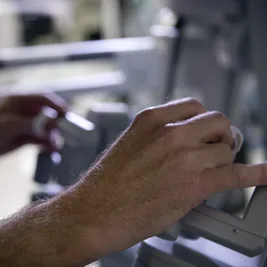
Recover Faster With Minimally Invasive and Robotic Surgery
All the surgeons at the Digestive Health Institute (DHI) have a large depth of experience in offering minimally invasive surgery.
Meet The Experts

Juan Gutierrez, MD
Bariatric Surgery, General Surgery, Weight Management
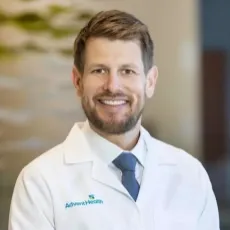
Michael P Latzko, MD
Bariatric Surgery, Weight Management
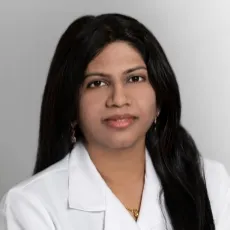
Kalyani Meduri, MD
Gastroenterology
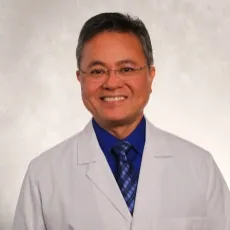
Salvador Ramos, DO
Bariatric Surgery, General Surgery, Weight Management
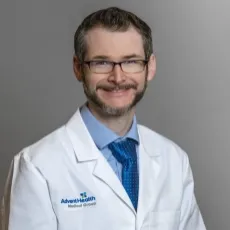
Diego Colom Steele, MD
Gastroenterology
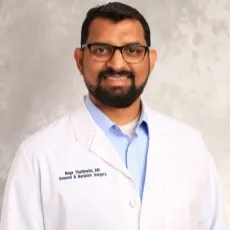
Naga Thatimatla, MD, FASMBS, FACS
Bariatric Surgery, General Surgery, Weight Management
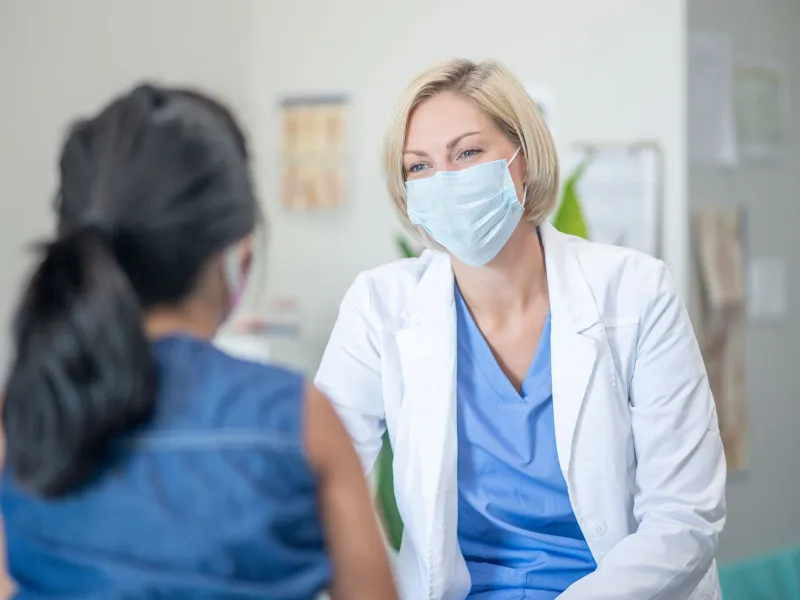
Surgical Consultations For Digestive Cancer Without The Wait
Appointments Within Five Days for Patients with Cancer
At AdventHealth Digestive Institute, we know that after being diagnosed with cancer, patients want and often need to begin treatment quickly. So we make it a priority to offer appointments for cancer surgery consultations within five business days, and often earlier.
Patients who are newly diagnosed with cancer, or have just found out they have cancer again, qualify for this priority access. Our surgeons will make themselves available to see you right away, even for a second opinion. We want to help you start your treatment as soon as possible.
News and Info
-

-
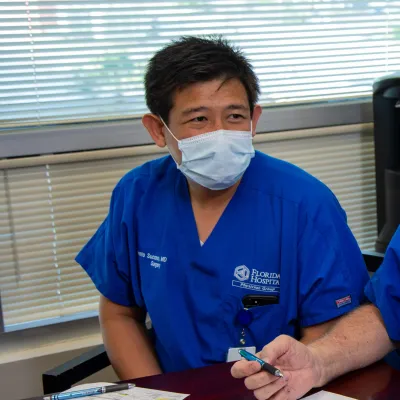
-
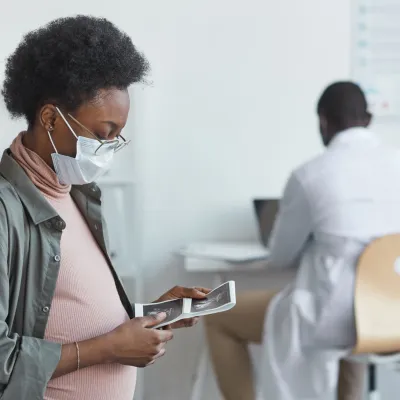
-
 Blogs
BlogsDigestive Institute Tampa Surgeon Appointed to Advisory Board of Robotic Surgeons
Estimated read time: -
 Blogs
BlogsSafeguard Your Colon Health: Get The Facts about colorectal cancer screening tests
Estimated read time: -

